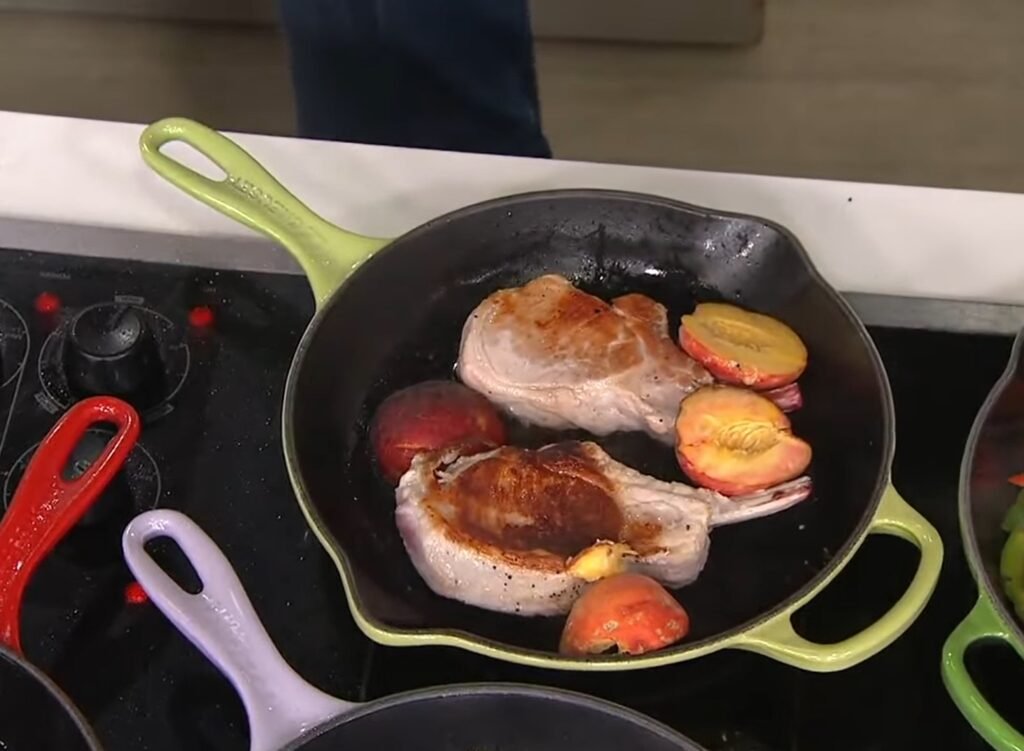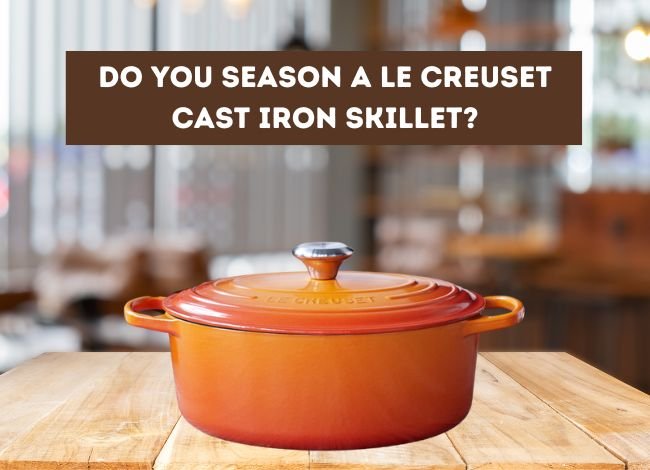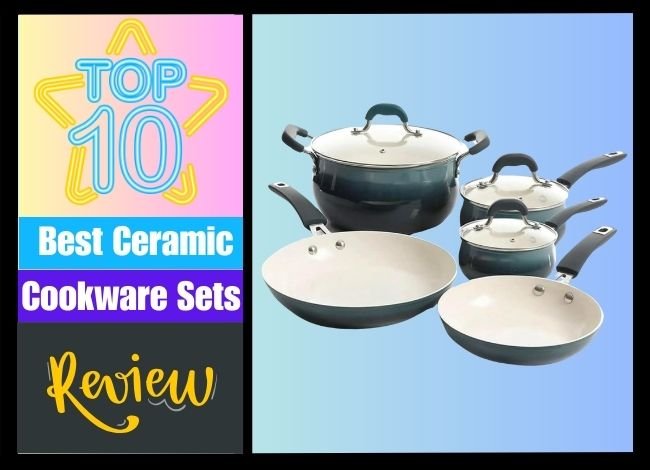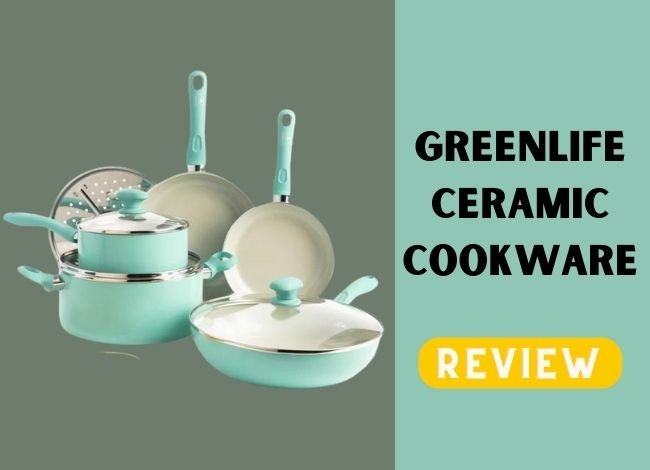Last Updated on January 10, 2024
When discussing kitchenware, especially those that are a significant investment in quality and functionality, it’s crucial to know how to care for them properly. One of the most iconic brands in the cookware industry is Le Creuset. Known for their vibrant colors, superior quality, and exceptional heat retention, professional chefs and home cooks covet Le Creuset’s range of products. But the question often arises: “Do you season a Le Creuset cast iron skillet?” Let’s delve deep into this topic to provide a comprehensive answer.
What is Seasoning?
First, to understand whether you need to season a Le Creuset cast iron skillet, it’s essential to understand what seasoning is. Seasoning is applying a layer of fat or oil to cast iron and heating it to create a patina. This layer is a protective coating, preventing rust and making the skillet non-stick. Seasoned skillets are also easier to clean and maintain.
Related Articles:
- Le Creuset vs. Rachael Ray Cookware: Which Cookware Is Better?
- Lagostina vs Le Creuset Cookware: What’s the Difference, How Are They Similar, and Which Brand is the Winner?
Le Creuset’s Unique Construction
Le Creuset’s cast iron skillets come with an enamel finish, unlike traditional raw cast iron skillets. This enamel, which can either be on the inside, the outside, or both, serves a dual purpose:
- Aesthetics: The enamel provides the skillet with the iconic Le Creuset colors, making them a stylish addition to any kitchen.
- Functionality: The enamel acts as a protective layer, preventing direct exposure of the cast iron to moisture, which could cause rusting.
Because of this enamel layer, Le Creuset skillets don’t have the same seasoning needs as traditional raw cast iron skillets.
So, Do You Season Them?
In a nutshell, you do not need to season a Le Creuset cast iron skillet if it is enameled. The enamel coating already provides a semi-nonstick surface that is easy to cook and clean. However, there are some nuances to consider:
- Interior Enamel: Most Le Creuset skillets come with sand-colored interior enamel. This enamel is designed to be durable and resistant to staining and dulling. It also provides a naturally nonstick surface, improving over time. So, the more you cook with it, the better it gets!
- Exterior Enamel: The vibrant exterior enamel of Le Creuset skillets protects the cast iron from rust and requires no additional seasoning.
- Bare Cast Iron Pieces: On the off chance that you’ve come across a Le Creuset product without enamel (which would be rare), then, like any cast iron cookware, it would need seasoning.
Benefits of Not Having to Season
There are several benefits to Le Creuset’s enameled skillets that don’t require seasoning:
- Low Maintenance: You save time and effort without the need to season regularly. Plus, there’s no concern about maintaining a seasoning layer, which can sometimes wear off from other types of cast iron cookware.
- Versatility in Cooking: You can cook acidic foods like tomatoes and wine in an enameled skillet without worrying about stripping the seasoning or imparting a metallic taste to the food.
- Clean with Ease: Enameled cast iron doesn’t have the porous surface of raw cast iron, making it easier to clean.
Tips for Using and Caring for Your Le Creuset Skillet
Even if seasoning isn’t necessary, proper care will ensure that your Le Creuset skillet lasts for generations:
- Heat Gradually: Always heat your skillet gradually. Extreme temperature changes can damage the enamel.
- Use Wooden or Silicone Utensils: Avoid metal utensils to prevent scratching the enamel.
- Avoid Cold Water: Don’t pour cold water into a hot skillet, which could cause thermal shock and damage the enamel.
- Clean with Care: While Le Creuset skillets are dishwasher safe, hand washing is recommended to maintain the skillet’s appearance. If food residue sticks, fill the skillet with warm water and let it soak before cleaning.
- Store Properly: Ensure the skillet is thoroughly dry before storing to prevent moisture buildup, which can lead to mold or mildew.
Conclusion
Le Creuset’s enameled cast iron skillets provide the benefits of cast iron without the need for regular seasoning. While the initial investment might seem high, the durability, longevity, and ease of maintenance make them a worthwhile addition to any kitchen. By understanding your skillet’s unique construction and caring for it appropriately, you ensure it remains a cherished piece of cookware for years.
Frequently Asked Questions
- What is seasoning, and why is it necessary for a Le Creuset cast iron skillet?
- Seasoning a cast iron skillet involves coating it with oil and baking it. This process creates a non-stick surface and protects the skillet from rust.
- Can I use my Le Creuset cast iron skillet without seasoning it first?
- While some Le Creuset cast iron skillets come pre-seasoned, seasoning it before first use can enhance its performance and longevity.
- What type of oil should I use to season my Le Creuset skillet?
- High-smoke point oils like canola, vegetable, or flaxseed oil are recommended for seasoning.
- How do I season my Le Creuset cast iron skillet?
- Clean the skillet, apply a thin layer of oil, and bake it in the oven at a high temperature for about an hour.
- How often should I re-season my Le Creuset cast iron skillet?
- Re-seasoning is generally recommended a few times a year or when the skillet starts to look dull or stick.
- Can I damage my skillet by seasoning it incorrectly?
- Using too much oil or not heating it properly can lead to a sticky surface, but this can usually be fixed by re-seasoning.
- Is there a special technique for cleaning a seasoned Le Creuset skillet?
- Avoid using soap and harsh abrasives. Instead, clean with hot water and a non-metal brush or sponge.
- Can I use my seasoned Le Creuset skillet on any heat source?
- Yes, but avoid sudden temperature changes as they can cause the cast iron to crack.
- Will acidic foods damage the seasoning on my Le Creuset skillet?
- Cooking highly acidic foods can strip the seasoning, so it’s best to limit their cooking time in a newly seasoned skillet.
- What should I do if the seasoning on my Le Creuset skillet starts to chip or flake?
- If the seasoning chips or flakes, it’s best to strip the skillet and re-season it.




